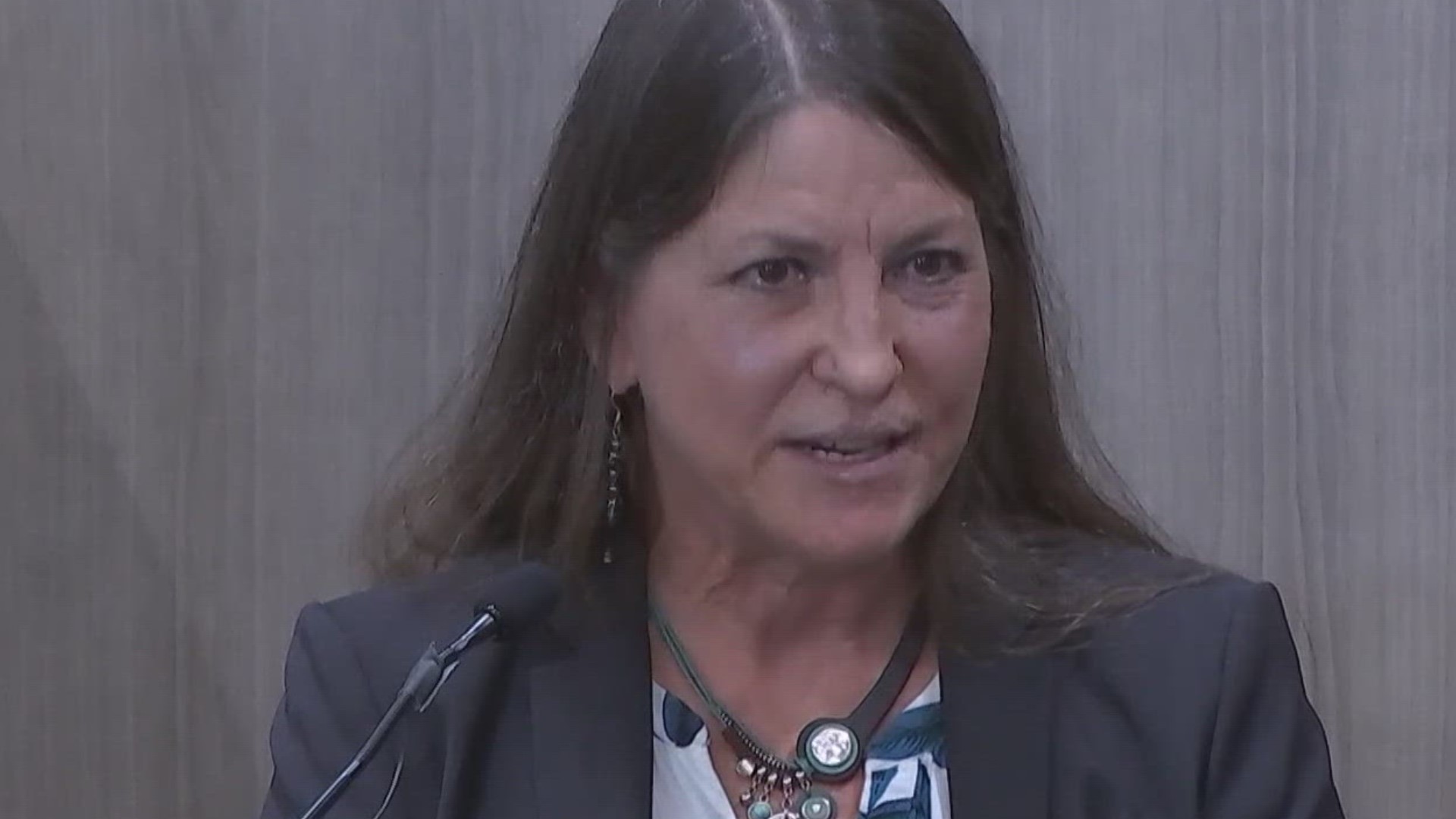VENICE, Fla. — One doctor at the center of the popular Netflix documentary "Take Care of Maya" took the witness stand on Thursday in the Johns Hopkins All Children's Hospital versus Kowalski case.
Dr. Sally Smith has faced accusations that she was not qualified to accuse Maya's parents, Beata and Jack Kowalski, of medical child abuse.
Smith, a pediatrician and a former staff member at All Children's Hospital, was the Director of the Child Protection Team for Pinellas County's Department of Children and Families. In other words, she was the resident child abuse expert for the entire county and a consultant for the hospital on such cases, a role she also held at other local hospitals.
When Jack Kowalski took then 10-year-old Maya to the emergency room in early October 2016, doctors on duty raised suspicions of possible medical child abuse from being overmedicated with high doses of ketamine and other pain medications.
Dr. Smith said pediatric ICU physician Dr. Beatriz Teppas Sanchez had called her for consultation on the Kowalski case over those suspicions. However, that following Monday, the same suspicions from another hospital staff member had been reported to the child abuse hotline. It was at that point that Smith said the Child Protection Team was spurred to look into the case and investigate further.
At issue in the case is whether Smith deceptively represented herself as a hospital staff member, posing as one of their doctors to obtain information from the family to further her investigation. Smith denied this accusation, adding that she was not wearing a white lab coat as the Kowalskis had claimed.
"I always say I am Dr. Sally Smith I'm a pediatrician with the Child Protection Team," she said.
Smith said that sentence was her default way of introducing herself to patients at the hospital, including Maya and her parents.
As a pediatrician and former staff member of the hospital, Smith had access to patients and their files.
"There's a slight overlap because the privileges that I have at the hospital allow me to review their records but primarily I was acting as a Medical Director of the Child Protection Team," she said.
Smith said she met Maya for a physical examination twice, but the 10-year-old girl declined to be examined and was left alone. She added that Maya's lab work showed extremely high levels of cholesterol and other concerning results.
"Certain abnormalities that based on my record review, I suspected were related to medications and potential toxicity, and so in evaluating the medical child abuse one of the things are trying to assess is if harm has been done and hopefully it's reversible," she said.
By then, she said doctors were already working to reverse any harm from the high doses of ketamine that Maya had been on before her dad brought her to the ER.
"It's sort of like threading a needle. I was not writing any orders or telling them which medications to stop or wean but as part of the whole child abuse investigation there is that component of what happens when you get them off these medications," Smith added.
Smith testified that she conducted a preliminary DCF report dated Oct. 13 and a secondary report dated Dec. 2, 2016, for which she gathered and reviewed more than 2,000 pages of records and items. She said her findings revealed that Maya had a functional neurological disorder and not Complex Regional Pain Syndrome as had been diagnosed by her previous doctors.
Some of the allegations against Beata Kowalski, who was ordered to have no contact with Maya during the investigation and shelter period, was that she was causing and amplifying her daughter's illness. Smith also said several things raised red flags in the case, including requests for high doses of pain medication and the fact that the family had taken Maya to a doctor in Mexico for a ketamine therapy treatment that involved five days in an induced coma.
Smith said she also spoke with Dr. Anthony Kirkpatrick, a local pain medicine physician and one of the doctors who administered the high doses of ketamine to Maya and charged the family more than $10,000 for a series of treatments. Kirkpatrick also recommended the Mexico treatment.
"This person put a nine-year-old child in a ketamine coma for days. It took her probably a week to just be able to be discharged from the hospital after that. I didn't find him reliable from what I saw," she said.
Counsel for the Kowalski family, Greg Anderson, challenged the much controversial Dr. Smith on some of her assertions as well as her credibility.
"You are in fact a medical prosecutor?" Anderson asked.
"That is nonsense, I am a medical doctor," Smith said.
"Are you an investigator or are you a prosecutor?" Anderson pressed further.
"I am neither. I'm a medical Doctor who is an expert in child abuse pediatrics. I don't need a psychiatric degree to assess medical child abuse. I'm very well trained to evaluate medical child abuse based on my child abuse, pediatrics experience, and board certification," Smith said.
The Kowalski family is suing the hospital for $220 million, accusing staff of medical malpractice, battery and false imprisonment for keeping Maya from them for 87 days. They also blame hospital staff for Maya's mother's suicide.

